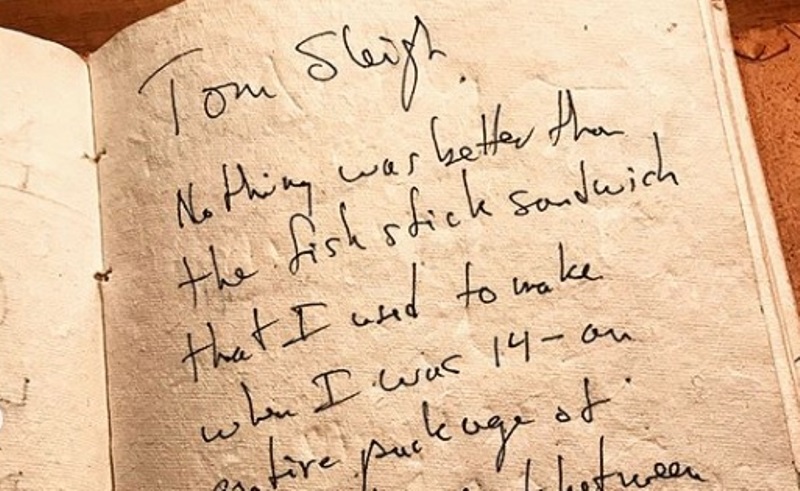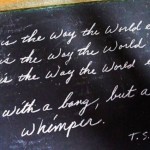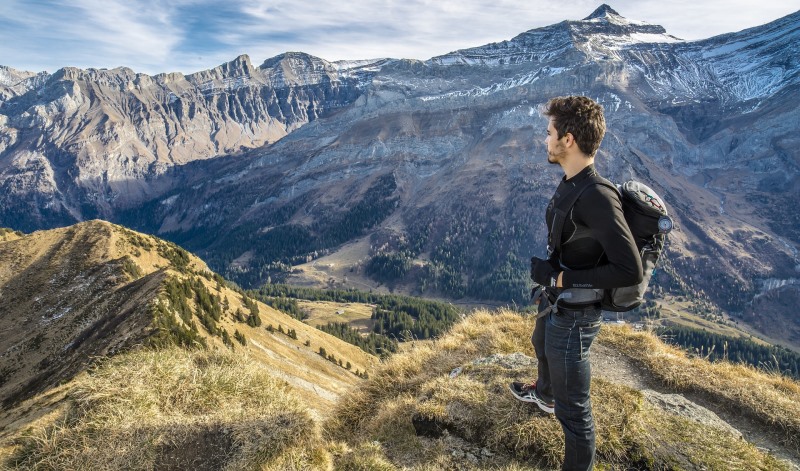According to Poetry Foundation,
“Tom Sleigh is the author of ten volumes of poetry, including The Chain (1996), Far Side of the Earth (2003), Space Walk (2007), and Station Zed (2015). Space Walk won the 2008 Kingsley Tufts Award and earned Sleigh considerable critical acclaim.”
Suggested read: Renascence And Other Poems By Edna Millay
Best Tom Sleigh Poems
Here are some of the best Tom Sleigh poems for you to read.
- The Advance
1
Out the barred window sandbags
in a sagging wall surround the guard post
where a soldier half-hidden by the flag
holds his rifle on his knees and looks a little lost.
It’s Sunday and quiet, the traffic noise
off aways, the sea behind the post flat as the tarps
pulled tight over the troop trucks.
Somewhere down the hall soldiers are being boys,
telling some joke in Arabic
in which I’m pretty sure I hear the word “zubrak”:
I walk between shelves loaded with canned rations,
the cool expiring slowly in the high-ceilinged room
while a pinned-up PSYOPS leaflet declares,
If you sleep in a cemetery, you’re bound to have nightmares.
2
No one sees the doll’s decapitated head small
and neat in rubble. Never tired or sleepy,
the head is its own country
obstinately surviving, the pupil
of its one eye peering through the glass’s pure
transparency. And a few feet away lie its slim, plastic,
long-legged thighs almost like
an obscenity the eye watches over —
no one in the street, nothing but bolt-marks
from tank-treads scarring the concrete
to give any of it drama — and what
about the way the lips’ frozen smirk
keeps daring me to touch the sexless V
between the thighs staring up at me?
3
The barracks dissolve into a reef of rubble in the fog.
On either side of the road, crater after crater
flashes with glints of glass, plastic bags,
a chair leg clinging to a dismembered chair.
The TV station, the power stacks
thrusting up through mist, the black-bearded posters
and banners strung across
the streets lead to an absolute nowhere:
all that’s left in the emptied town
after the army pulled out are PSYOPS leaflets
fluttering up around the car that winds
down the coast road deeper into mist, headlights
probing like instruments in a wound
they illuminate the more they violate.
- Aubade
Lathe of the ocean. Perpetual
Motion machine of the waves. Everything still
Being turned and shaped to a shape nobody
Foresees: Ten years ago, was it, when we
Walked that shore, too earnest and sheepish
To hold hands? The wind cutting through our clothes
Cleansed and burned, the chill off the Atlantic
An ache we courted in our dumbstruck talk:
Callow, expectant, what wouldn’t love give?
Cavalcanti’s ray from Mars, Dante’s wheel that moves
The planets and the stars, how nervous
We were, awkward and shivering: “Like this,
Do you like it like this?” Up all night,
Then waking to the smell of flannel and sweat,
We lay grateful, winded, goosefleshed in the chill,
Our own atmosphere rich and breathable:
We drank round the clock, embracing extremes,
Too hurried and heartsore to think of time…
Out fishing after midnight, we watched schools of squid
Slide and shimmer, tentacles tight-wrapped
Around our gig’s hooks: Yanked from the water,
They spouted jets of ink, then pulsed and quivered
And faded to dead-white, their eyes, resigned and sober,
Opening wider and wider…Ten years more,
And will either of us remember
That ink sticky on our hands, the moon-glare
Rippling as we knelt underneath the pier
And scrubbed and scrubbed our hands in the dark water?
Suggested read: #NaPoWriMo Poems That’ll Disturb The Comfortable And Comfort The Disturbed
- Day Room
His head rose like a torch in a tomb.
Banquet-style, as at a second Symposium,
The others lounged on couches or lay knocked out.
A net of shadows dangled from wire-meshed windows.
Buffeted there, there, some swam against currents
Or were swept off into underwater canyons.
Visitors, confusion streaming over them, speech
Foaming into eddies, words lolling like jetsam
On the lightless bottom, listened to the news
Of minds crammed in bodies: Here, all was stoic
Or hectic or unspeaking disconnection.
Moving shadows on the TV screen implied
A world out there, though a world more couth,
More uncouth? in four o’clock’s slushy freezing dark:
Plato’s cave loomed in semblance of the walls,
Only wasn’t it the cave as All, no outside
Not inside, nothing more real to go out into?
He peered far down to where dark swam up
From the depthless screen and hovered poised
Above dark-in-light: Sergeant Schultz kept repeating,
“I know nothing, nothing,” his funny-Nazi German accent
As he recoils from his ever sauve tormentor, the American
POW Colonel Hogan who threatens Schultz
With good-humored ruthlessness as bad as a mother
In a supermarket aisle cajoling her greedy-eyed child,
“Ah ah ah—remember the Russian front!”
—Poor Schultz’s accent making him more human in his terror,
Though only an actor acting his lines through
The canned laughter’s bacchic furor sweeping down
The corridor to die in murmurs of slippers shushing.
Cast yourself in it, imagine having to say those lines,
Not just now, but always, eternity a chaos
Of laugh-track frenzy more demonic than funny,
Reruns of Hogan haunted by the actor
Who acts Hogan’s lines, his real-life orgies
Before a secret camera ending in his Glogotha,
His infamy to be bludgeoned and found wrapped
Naked in a shower curtain that hangs
In the mind like the cave’s walls turning outside
Inside outside inside no end or difference inside out
—The almost see-through membrane of a world gone flat:
He hunches forward to change the channel.
Muttering something to Schultz’s “I know nothing, nothing,”
A grim joke maybe, “Ain’t that the truth…” though really,
Who could know what words he was or wasn’t
Answering, who can hear above the roar of
Earth moving under him, trying to throw him off
As he clings to the sofa hurtling through space!
And as he clings, the screen slowly opens and fans out wide
Around the National Broadcasting Corporation peacock
Waving its plumes, flaming blues, greens, radiant vermilions,
Brilliance of the seasons, late-morning pastels
Easy and restful for the brain and eye,
Sempiternal hues Atlantis rose up and sank back into.
And these feather off into grays, solid wintry
Grays that give off nothing and reflect nothing back.
- Beirut tank
Staring up into the tank’s belly lit
by a bare bulb hanging down off
the exhaust, a mechanic’s hands are up
inside the dark metallic innards doing something
that looks personal, private. This tank is nothing
like the ones the Americans deploy.
Those have uranium piercing shells that could melt
right through this tank’s armor and set off
the ammo box: nothing can withstand the American tanks.
The barrel’s called a cannon. The machine guns they call
deterrents. The tank is old, small, about the size
of a horse and cart. The armor plate shines green
under the streetlight. The sprockets, almost rusted out.
Somebody forgot to grease the nipples. The timing belt is nicked
and worn. The spare parts from France don’t fit. This wire
crossed with this wire makes a catastrophic fire.
Be careful how you route it. .20 caliber ammo
goes in the hatch behind the armor plate.
The mechanic on his back in the dirt,
cursing in Arabic, sounds like he’s cursing
in a good-natured way: who was the fucking moron
who did the maintenance on this thing?
This tank, this tank, he should push it off
a cliff into the sea so that it could bob for
half an hour before sinking under the Pigeon Rocks
where all the lovers gather in the shadows
near that little bar, lit by a generator, that serves arak
and warm beer to soldiers hanging out on the Corniche:
mainly conscripts from down south, whose orange groves
rot because nobody can pick the oranges: try to pick
an orange and a cluster bomb lodged in leaves
comes tumbling into your basket. What weight oil
did this cocksucker use, anyway? And this engine,
it’s gonna blow. Beat up tanks and sandbags,
that’s all this army is, old sparkplugs that get fouled
so that you have to file the gaps over and over.
He stares up in that live, minute, completely
concentrated way of scrutinizing something
or someone you thought you understood:
the tank’s underbody completely covers his body
so they look like they’re embracing when he reaches up
inside it, his needle nose pliers crimping, twisting,
pulling down hard. There, you see that, it’s all corroded.
The cannon jutting out looks both threatening
and vulnerable as if the tank’s firepower
were dependent on that wire. He runs two fingers
up and down it, then feels where rust,
mixed into an oily paste, shines like bloody flux
that he gently dips his finger in, sniffs and tastes.
Clanging back his tapping on the armor plate,
as he listens to her talking on his back in the dirt, screwing in
the spare parts, the tank says what tanks always say,
Fix me, oil me, grease me, make it fit,
confirming what he knows about the French.
Suggested read: “Live Frugally On Surpise”, Alice Walker And Her Beautifully Wise Poems
This is all we have on today’s post on the best Tom Sleigh poems. This is, however, not an exhaustive list, and if we have missed out on some of your favorites, then please feel free to add them in the comment section below.
Until next time!













